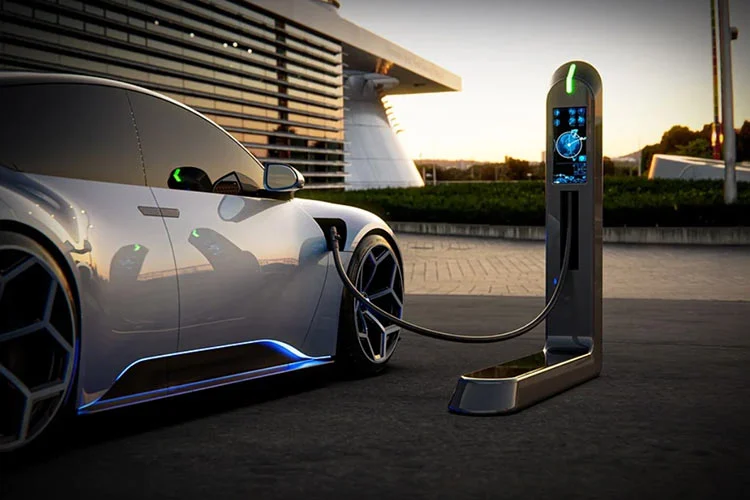Syllabus:
GS3: Conservation, Environmental Pollution and Degradation, Environmental Impact Assessment.
Context:
Recently, The Government of India has approved a forward-looking scheme to promote the domestic manufacture of passenger cars with a special focus on electric vehicles (EVs).
More on the News

- This key initiative supports India’s 2070 net-zero target, promotes green mobility and growth, and aims to position the country as a global hub for auto manufacturing and innovation.
- The Ministry of Heavy Industries released detailed guidelines for the “Scheme to Promote Manufacturing of Electric Passenger Cars in India” on March 15, 2024.
- Additionally, the scheme aims to expand charging infrastructure within cities and on selected inter-city/highway routes in coordination with the Ministry of Road Transport and Highways (MoRTH).
- The Department of Revenue notified reduced import duties on March 15, 2024, under the Scheme. An invitation for online applications will be issued soon.
- The Scheme aims to attract global EV investments, boost local manufacturing, create jobs and support the “Make in India” initiative.
- To attract global investors, approved applicants can import e-4Ws (CBUs) worth at least $35,000 at a reduced 15% duty for five years from approval.
- Approved applicants would be required to make minimum investment of Rs. 4,150 crores in line with the provisions of the scheme.
Schemes to Promote Electric Vehicles in India

- PM Electric Drive Revolution in Innovative Vehicle Enhancement (PM E-DRIVE) Scheme: To accelerate EV adoption and establish charging infrastructure across the country.
- Scheme for Promotion of Manufacturing of Electric Passenger Cars in India (SPMEPCI): To attract global EV manufacturers to India and promote domestic manufacturing of electric passenger cars.
- Production Linked Incentive (PLI) Scheme for Automotive Sector: To boost domestic manufacturing of advanced automotive technology products and attract investments in the automotive value chain.
Custom Duty Benefits
- The approved Applicants will be allowed to import CBUs of e-4W manufactured by global Group Companies with a minimum CIF value of USD 35,000 at reduced customs duty of 15% for a period of 5 years from the Application Approval Date.
- The maximum number of e-4W allowed to be imported at the aforesaid reduced duty rate shall be capped at 8,000 nos. per year. The carryover of unutilized annual import limits would be permitted.
- The maximum number of EVs to be imported under this Scheme shall be such that the total duty foregone will be limited to the lower of the following:
- The maximum duty foregone per Applicant (limited to Rs.6,484 crore), or
- Committed investment of the Applicant (minimum Rs. 4150 crore).
Bank Guarantee
- The applicant must provide a bank guarantee from a scheduled commercial bank in India, equal to the higher of ₹4,150 crore or the total duty forgone, to ensure commitment to setting up manufacturing, meeting DVA targets, and complying with scheme conditions.
- The Bank Guarantee should be valid at all times during the tenure of the Scheme.
Eligibility Criteria for various components

- All electric vehicles (EVs) must be registered under the Central Motor Vehicles Rules (CMVR), 1989, to get benefits under the PM E-DRIVE scheme. Only vehicles that meet the scheme’s eligibility criteria will be included.
- For electric two-wheelers (e-2Ws) and three-wheelers (e-3Ws), they must be made and registered during the scheme’s active period. After the scheme ends, PM E-DRIVE certificates for these vehicles will no longer be valid.
- The incentive amount will be:
- Rs. 5,000 per kWh for vehicles registered in the financial year 2024–25
- Rs. 2,500 per kWh for vehicles registered in the financial year 2025–26
- However, the incentive will be limited to either a fixed amount per vehicle or 15% of the vehicle’s ex-factory price — whichever is less.
- Also, only EVs with an ex-factory price below a certain limit (as defined in the scheme) will be eligible for these benefits.

